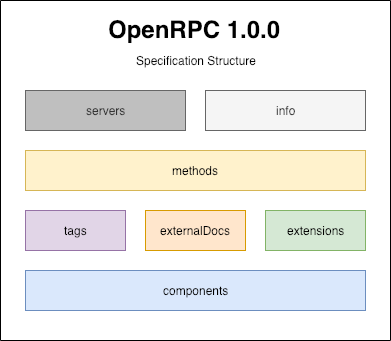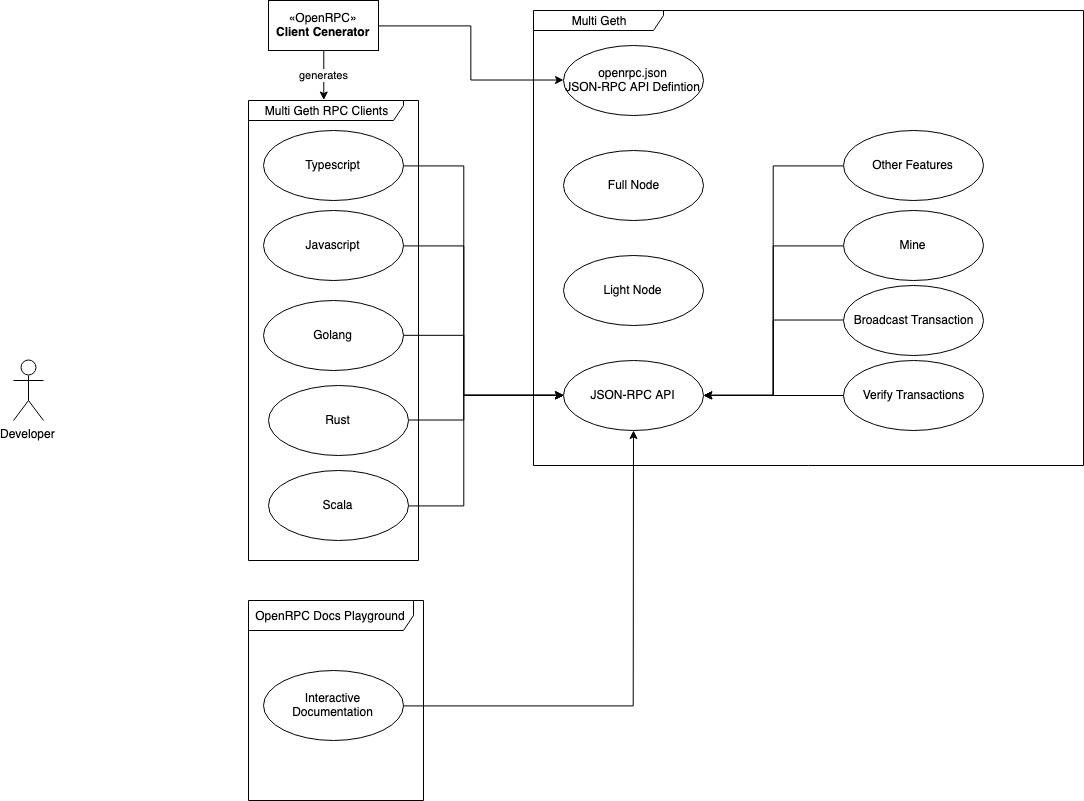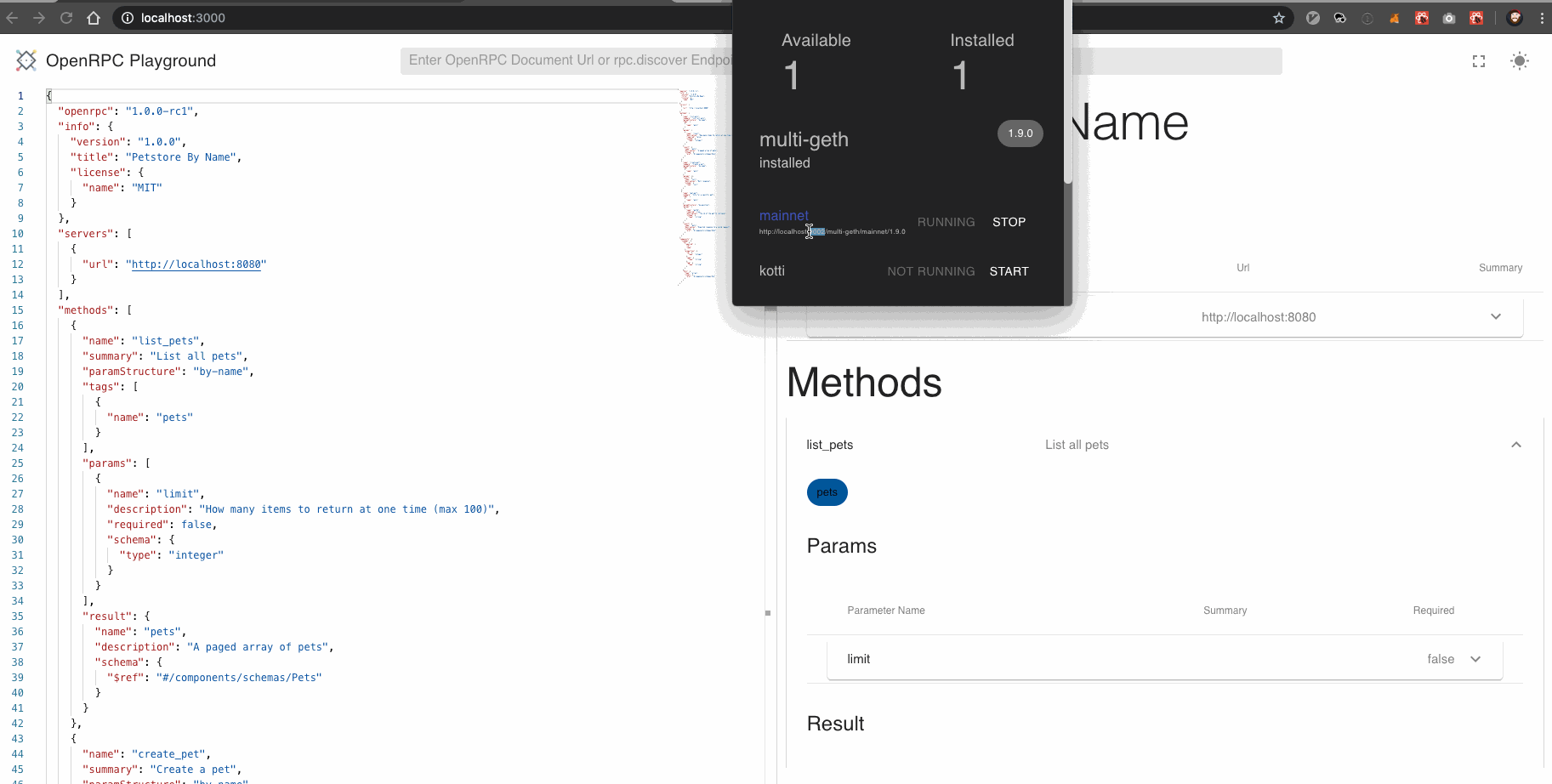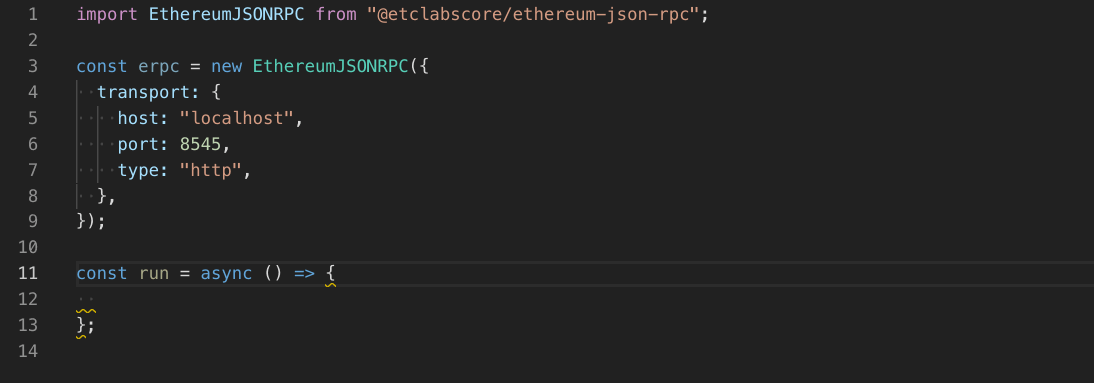EIP1901 - Add OpenRPC Service Discovery To JSON-RPC Services
# Abstract
# What is this?
This is a proposal to add OpenRPC (opens new window) support to existing and future JSON-RPC services by adding the method rpc.discover (opens new window) to the projects JSON-RPC (opens new window) APIs, enabling automation and tooling.
The OpenRPC Document and generated Documentation that specifies all the methods an EVM-based blockchain should implement can be found here (opens new window).
This was first proposed here as an ECIP (opens new window), but the benefits of this kind of tooling is apparent across Bitcoin, Ethereum Classic, Ethereum and other JSON-RPC accessible blockchains.
# Motivation
Although EIP-1474 outlines a JSON-RPC specification. Ethereum still lacks a machine-readable JSON-RPC Specification that can be used as the industry standard for tooling. This proposal attempts to standardize such a specification in a way that is versionable, and both human and machine readable.
Ethereum clients can expose RPC endpoints with different method signatures and cause compatibility issues between clients.
Developers need a reliable developer experience, and an industry standard way to describe Ethereum JSON-RPC 2.0 APIs.
# Specification
# What is OpenRPC?
The OpenRPC (opens new window) Specification defines a standard, programming language-agnostic interface description for JSON-RPC 2.0 (opens new window) APIs, which allows both humans and computers to discover and understand the capabilities of a service without requiring access to source code, additional documentation, or inspection of network traffic. When properly defined via OpenRPC, a consumer can understand and interact with the remote service with a minimal amount of implementation logic, and share these logic patterns across use cases. Similar to what interface descriptions have done for lower-level programming, the OpenRPC Specification removes guesswork in calling a service.
# Structure
This is the structure of an OpenRPC Document:

JSON-RPC APIs can support the OpenRPC specification by implementing a service discovery method that will return the OpenRPC document (opens new window) for the JSON-RPC API. The method MUST be named rpc.discover. The rpc. prefix is a reserved method prefix for JSON-RPC 2.0 Specification (opens new window) system extensions.
# Use Case
This is the vision for the use case of OpenRPC and how it would relate to a client implementation like multi-geth:

# Rationale
# Why would we do this?
Services need to figure out how to talk to each other. If we really want to build the next generation of automation, then having up to date libraries, documented APIs, and modern tools are going to provide easy discovery, on-boarding, and enable end user and developer interaction.
Use cases for machine-readable JSON-RPC 2.0 (opens new window) API definition documents include, but are not limited to:
- A common vocabulary and document will keep developers, testers, architects, and technical writers all in sync.
- Server stubs/skeletons generated in many languages
- Clients generated in many languages
- Mock Server generated in many languages
- Tests generated in many languages
- Documentation Generation
# Alternative
OpenRPC (opens new window) documents just describe JSON-RPC (opens new window) APIs services, and are represented in JSON format. These documents may be produced and served statically OR generated dynamically from an application and returned via the rpc.discover (opens new window) method. This gives projects and communities the opportunity to adopt tools, documentation, and clients outlined in the etclabscore/ethereum-json-rpc-specification before the rpc.discover (opens new window) method is implemented for a particular client.
# Implementation
# Tooling
# Interactive Documentation Playground
You can view the interactive documentation here (opens new window).
OR
Using rpc.discover via multi-geth, the playground can discover and display the documentation for the Ethereum JSON-RPC API:

# Generated Client
The clients (opens new window) are generated from the OpenRPC Document openrpc.json outlined in this EIP, and can be used as an alternative to web3.js or ethers.js but for various languages:

# Mock Server
The OpenRPC mock server (opens new window) provides a mock server for any given OpenRPC Document which allows testing without booting up a real network.

# Resources
- Multi-Geth OpenRPC Discovery (opens new window)
- EDCON 2019 talk on OpenRPC and The Future of JSON-RPC Tooling (opens new window)
- etclabscore/ethereum-json-rpc-specification (opens new window)
- open-rpc.org (opens new window)
# Copyright
Copyright and related rights waived via CC0 (opens new window).